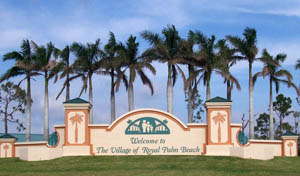The Royal Palm Beach Village Council last week gave preliminary approval to an ordinance that would create regulations and definitions for medical marijuana treatment and retail centers as a special exception use.
The action at the Jan. 19 council meeting follows approval of a state constitutional amendment Nov. 8 to allow such facilities. The ordinance would allow those uses in commercial and industrial areas of the village, subject to significant regulations.
Village Attorney Jennifer Ashton explained that a sizable majority of voters approved the constitutional amendment allowing people to purchase and use medical marijuana in all forms.
“Previously, in 2014, the state legislature had allowed medical marijuana only in low-THC form,” Ashton said. “Now it is allowed in all forms.”
This includes the sale of medical marijuana in food products and other variations.
The State of Florida is now undergoing a rule-making process, and the Florida Department of Health will be coming out with new rules and regulations. The legislature will most likely take up the issue in the current legislative session, Ashton said.
In the meantime, Ashton and other village officials believed it important to propose regulations to the council immediately, rather than impose a moratorium.
“The question before you tonight is not whether medical marijuana is a good thing or a bad thing,” Ashton said. “That has already been decided by the voters. The question for you tonight is do we regulate it now or do we regulate it six months from now? My strong recommendation is that we go ahead and pass regulations now.”
The ordinance creates new definitions for marijuana, marijuana retail and treatment centers, and what type of centers would be allowed in the village.
“They have different uses attached to them and they have different regulations,” Ashton said. “It is going to be adding medical marijuana retail centers as special-exception uses in the general commercial district, and it is adding treatment centers as a special-exception use in the industrial general district.”
In addition to having a special exception process for those uses, the ordinance would impose specific requirements on them.
“We are proposing to have a distance separation between facilities of 1,500 feet, and also that no facility may be located within 1,500 feet of an elementary school, secondary school, child daycare facility, county or municipal park, licensed drug or alcohol rehabilitation facility, both inpatient and outpatient, or places of worship,” Ashton said.
The ordinance also specifies that only medical marijuana would be allowed in the facility. “They are not going to have alcohol sales, and they are not going to have sales of other controlled substances or over-the-counter medications,” she said. “Medical marijuana is going to be the only thing allowed in the facility.”
Hours of operation for retail sales, 7 a.m. to 9 p.m., come from the current state statute. Treatment centers would be able to operate 24 hours a day, including home delivery, also in the state statute. Consumption is allowed on-site for treatment centers but not at retail facilities. The activities must occur entirely within a closed building.
“We do not want to create a nuisance situation, especially attracting uses to children or criminal activity,” Ashton said. “We are requiring that growing, manufacturing, processing and selling be entirely within the building. There will not be outdoor sales; there will not be showing of marijuana products.”
During the special-exception approval process, the business must provide a security plan that meets the current requirements of state law.
“The current state law is actually very specific in the types of security features that must be at these facilities,” she said, pointing out that they must be cash-only. “Currently, federal law prohibits possession, so these businesses cannot utilize the federal banking system. They have to be cash-only, which obviously presents a set of challenges with preventing criminal activity. You have deliveries of the product, and cash, and it could be a target. So, we do want them to show compliance with that state law security system plan.”
Vehicles transporting marijuana cannot be identifiable with the associated uses in order to create a safe situation while making deliveries. The facilities must also provide a contact person so that if an issue arises, the Palm Beach County Sheriff’s Office will know exactly who to call. Exterior signage would be limited.
“We are not allowing them to post signage in the windows,” Ashton said. “The reason for this is a safety concern. We need to be able to have the PBSO maintain a clear line of sight into the facility at all times and not have it littered with paper signage.”
The ordinance would require a small window sign indicating that only people with state-issued ID cards may enter the premises and buy marijuana. Employees must be at least 21 years of age. All managers must pass a Level 2 background screening for felonies, as required by current state law.
The facilities would also be prohibited from displaying products in the window.
“We do not want to make these businesses targets for criminal activity,” Ashton said. “If you have these products in the window, it’s an easy smash-and-grab.”
If a facility changes ownership, the new owner must go through the same special exception process, she said, adding that all centers must comply with existing state laws.
Vice Mayor Jeff Hmara pointed out that DUI intoxication by marijuana must be determined by a blood test, which he thought could be problematic.
Mayor Fred Pinto commented that it is unusual for the village attorney to “strongly recommend” approval to move forward with an ordinance.
Councilman David Swift said that he did not vote for the amendment and does not have faith in the legislature’s ability to control use.
“I agree that we should regulate this,” Swift said.
Hmara made a motion to approve the ordinance, which carried 5-0.








